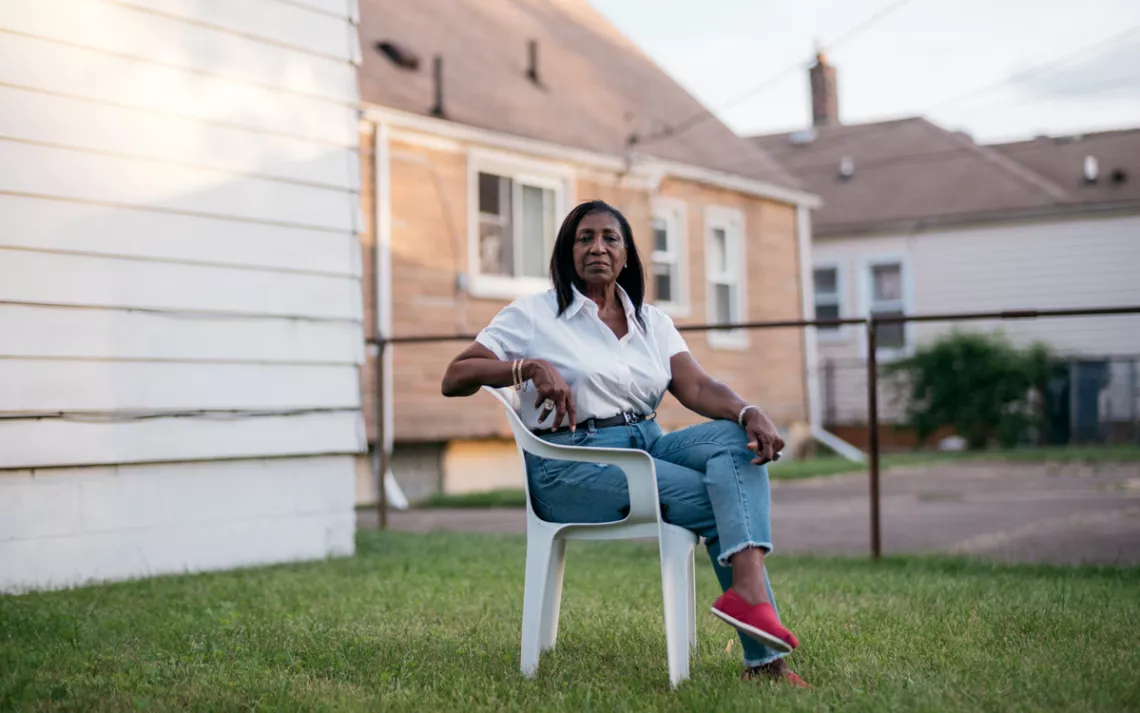Vicki Dobbins on Coal and COVID
This Sierra Club activist knows all about industrial pollution

Vicki Dobbins, Sierra Club Michigan Chapter executive committee member | Photo by Ali Lapetina
- Name: Vicki Dobbins
- Location: River Rouge, Michigan
- Contribution: Sierra Club Michigan Chapter executive committee member
How long have you lived in River Rouge?
I was born in Detroit. When I was two years old, we moved to River Rouge, where my dad was a factory worker with the Ford Motor Company. At that time, all these houses were new. After I got married, I moved to Detroit and raised my children there. In 1999, my mother had a stroke, and I came back to River Rouge to take care of her.
How did you get involved with the Sierra Club?
In 2012, the Sierra Club organized a bus tour. I had the opportunity to ride around and learn about all the chemicals that US Steel was putting out that were polluting the land, water, and us. I started speaking at hearings about nearby coal plants and companies, like DTE Energy and Marathon Petroleum, that were pouring out pollutants. I've just been going ever since.
I heard that you are recovering from the coronavirus.
I've been healthy all my life. I'm a ballroom dancer. In March, I became ill, so I took myself to the hospital, where I tested positive for COVID-19. I ended up staying in the ICU for two weeks. Later, I spent two weeks in a nursing home. And then I was home with physical and occupational therapy for another two or three weeks. It was a traumatic experience.
Do you think the air pollution where you live made you more vulnerable to the virus?
I take pretty good care of myself. I could be wrong, but if I lived in another area, I don't believe I would have been as ill.
What are you working on these days with the Sierra Club?
We are supposed to be getting $7.5 million [from a settlement with DTE Energy] to clean up the plants and improve air quality in our county, but Trump is trying to block it. What our leaders have to understand is that we're looking to clean up our air now so our children can have clean air. This is a high-risk community with the lowest amount of income and the sickest people. That combination just does not work. We cannot survive.
This article appeared in the November/December 2020 edition with the headline "Of Coal and COVID."
 The Magazine of The Sierra Club
The Magazine of The Sierra Club



